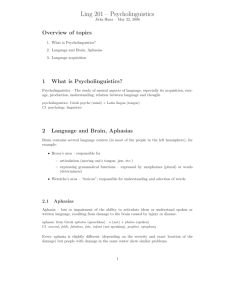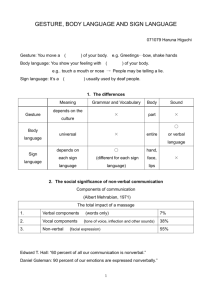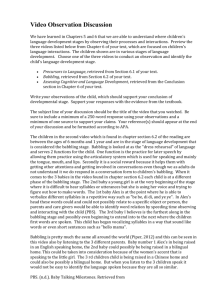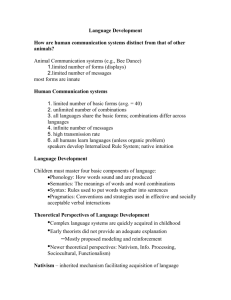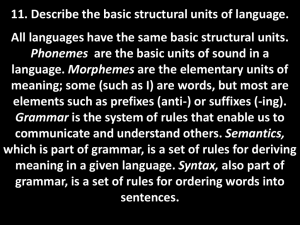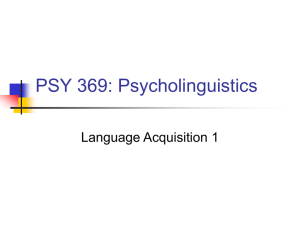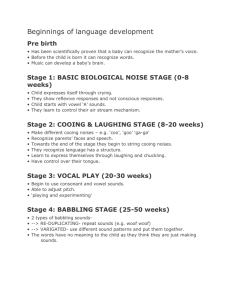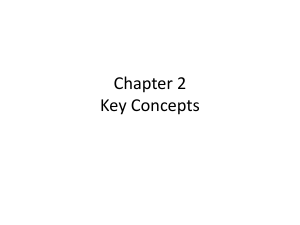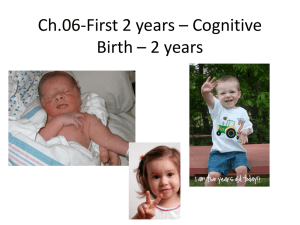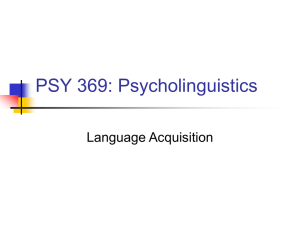PSY 369: Psycholinguistics - the Department of Psychology at
advertisement
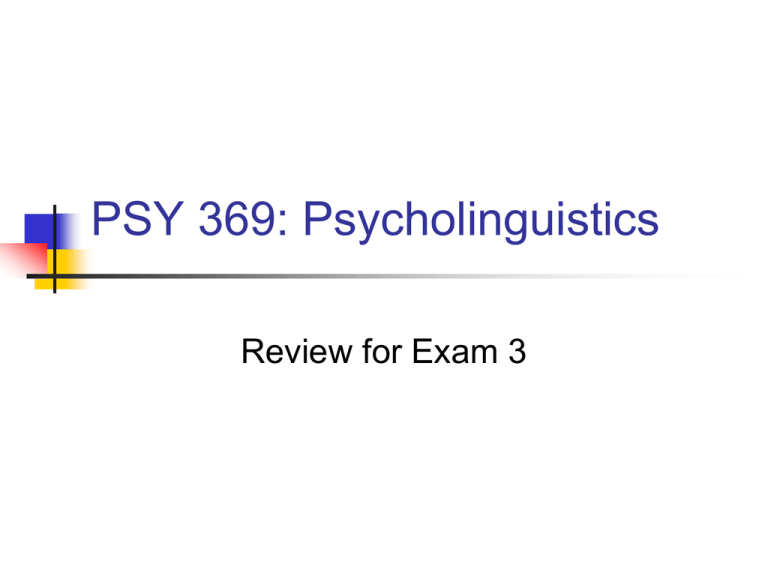
PSY 369: Psycholinguistics Review for Exam 3 Exam coverage Chapters 10 Language development: early 11 language development: later 12 Language development: processes and debates 13 Brain and Language 14 Language and thought Language development: Some terms Assimilation Babbling categorical perception child-directed speech Coalescence Codability Cognitive constraints Cooing Critical period hypothesis Fast mapping Feral/isolated children 'fis' phenomenon Holophrases Idiomorphs Reduction Mean length of utterances Reduplicated babbling Metalinguistic awareness Reduplication Motherese Referential strategy Mutual exclusivity bias Semantic bootstrapping Negative evidence Sequential bilingualism Ostensive definitions Simultaneous bilingualism Overextensions Taxonomic constraint Overregularization Underextensions Parameter setting Variegated babbling Phonological awareness Whole object bias Prelinguistic communication Prosodic factors Language development: Issues Imitation vs. innateness Universal (typical) pattern of development e.g., 6 months, 12 months, … Cooing -> babbling -> words -> sentences Emergence of syntax and morphology What do we learn about language before we’re born? Categorical perception in infants Extensions of meaning Arguments for and against (e.g., critical periods) One-word per referent heuristic Fast mapping Whole object constraint, Taxonomic constraint, Mutual exclusivity Memory (words) and rules approach to morphological development Feedback: negative and positive Second language learning Brain and language: Some terms & issues Broca’s Aphasia Conduction aphasia Direct electrical stimulation ERP technique Geschwind Model fMRI Lateralization of language functions Phrenology Split brain patients Wada technique Wernicke’s aphasia Language and thought: Some terms Basic (focal) color terms Categorical perception Color hierarchy Counting systems (cross-linguistic) Codability of color names Color discrimination tasks Language transfer Linguistic determinism Linguistic relativity Inner speech Benjamin Lee Whorf Questions? Exam format the same as the past two exams Multiple choice Vocabulary matching Short answer Slightly longer answers Future classes Thoughts about future classes New textbook, different organization (better I think), paperback (less expensive), website, etc. More reading of articles, perhaps with ‘thought papers’ and discussion Less broad coverage of everything in psycholinguistics, more focus on specific topics/issues nd day disucussions Perhaps a 1 day lecture, 2 More active exercises (these are hard to come up with, suggestions welcome)
